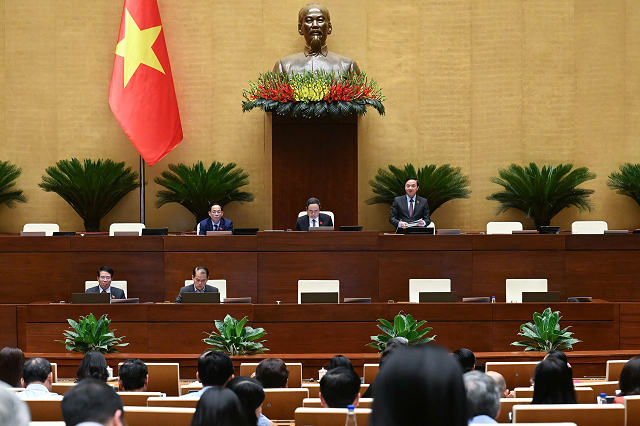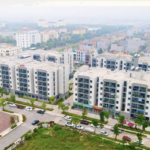The resolution’s pilot period is set for 5 years and will be implemented nationwide, encompassing significant aspects related to investment mechanisms, planning, pricing, and distribution of social housing. A notable highlight is the establishment of the National Housing Fund, a non-budgetary state financial fund with legal personality and a non-profit orientation.
The National Housing Fund is formed from various sources, including state budget funds, revenue from land auctions and public asset sales, contributions from infrastructure-invested land value, voluntary donations from organizations and individuals at home and abroad, and other legitimate sources. The fund’s mission is to invest in the construction of social housing and related technical and social infrastructure, as well as to establish a rental housing fund for workers, officials, and public employees.
 Overview of the Meeting on the Afternoon of May 29
|
Project assignment without bidding, streamlining procedures
The resolution permits the direct appointment of investors and investment approval for social housing and housing for the armed forces without using investment capital, bypassing the bidding process. This notable change aims to shorten the investor selection process.
Additionally, the procedures for preparing, appraising, approving, and adjusting detailed planning projects have been simplified. Investors will no longer have to repeat the detailed planning assignment procedures for projects that lack detailed planning or require adjustments.
The investment construction process has also been streamlined. Specifically, social housing projects will not require feasibility study report appraisals from construction specialized agencies. Instead, the investor or investment decision-maker will organize the appraisal and approval process and be accountable for complying with legal regulations.
Flexible pricing with a cost control mechanism
Regarding the sale and rent-to-buy prices of social housing, the resolution allows investors to determine prices based on investment costs and regulated profit margins. Investors will independently develop and hire qualified consultants to conduct price audits. Prices can be determined for each phase, structure, or the entire project.
After the project is accepted and put into use, the investor must conduct an audit, settle investment costs, and submit the results to the specialized agency under the provincial People’s Committee to verify the sale and rent-to-buy prices of social housing.
If the price according to the audit and settlement is lower than the signed contract price, the investor must refund the difference to the buyer or tenant. Conversely, if it is higher, the investor cannot collect additional amounts.
The resolution also clearly defines the housing conditions for receiving support policies, the mechanism for renting social housing and worker dormitories in industrial parks, and policies on compensation, resettlement support, and land fund creation for social housing.
The passage of this resolution is expected to provide a clear and flexible legal framework, promoting the development of a wide range of social housing funds to meet the growing needs of low-income people and workers in urban and industrial areas.
Building a 140km-plus Expressway Linking Binh Thuan, Lam Dong, and Dak Nong
The proposed investment in a highway connecting the three provinces of Binh Thuan, Lam Dong, and Dak Nong is an ambitious project. With an approximate length of 140.6 km, this highway will be a significant infrastructure development in the region. The route is designed to traverse through breathtaking landscapes, connecting communities and fostering economic growth. The Binh Thuan province will boast a 43.9-km stretch of this highway, while Lam Dong and Dak Nong will be graced with 61.9 km and 34.8 km of this road, respectively. This highway promises to be a game-changer for the region, offering a faster and more efficient transportation network.
Can Surplus Office Spaces Post-Merger be Transformed into Social Housing?
Amid challenges in developing social housing across the country, the Land Management Authority has proposed an innovative solution. They suggest repurposing surplus government offices, resulting from mergers, into social housing. This proposal offers a potential win-win situation by addressing the need for social housing while making efficient use of existing resources.
Why Are Property Prices in Hanoi Skyrocketing?
The soaring prices of apartments in Hanoi can be attributed to the high input costs of developing a commercial residential project. Land costs, which account for 25% of the total, surge to 40-50% for prime locations. Additionally, construction costs have been on a steep upward trajectory recently, contributing significantly to the overall expense.
“Transforming Two Student Residences into Social Housing: A New Vision for Bac Lieu”
The Bac Lieu People’s Committee has unveiled an ambitious plan to construct 1,984 social housing units across the province by 2030. This initiative underscores the committee’s commitment to addressing the housing needs of its residents and fostering a sense of community and inclusivity in the region.





















